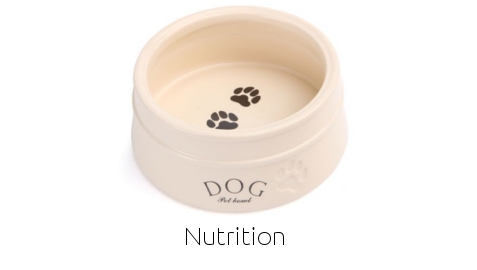Many benefits arise from feeding your dog with a well prepared and balanced diet. Knowing the exact nutritious food that your dog should consume is important in order to maintain an optimal health and state of living. Here some important dog nutritional advices.
-
Balanced diet: Feeding your dog with the right foods and amounts if very important. Dogs that are not fed with a balanced diet are more prone to diseases, some of which can be transmitted to humans. Lack of vitamins and minerals, especially calcium can lead to deficiency diseases. Such kind of diseases can happen in baby puppies within a couple months of age. All the food components that make up a balance diet can be obtained at home, while some can purchased as a supplement.
-
Meat: Dogs are carnivores by nature and prefer mostly meat based diets. Cooked meat is the most preferable dog food and should be part of any balanced diet, unless specifically unadvised by your veterinarian during some treatment your dog is engaged in. You can decide on either give to your dog pure meat or supplements that include meet and other types of food. There are several meat options available for dogs: beef, lamb, pork, turkey, chicken, venison and ostrich are some of the most common. Whatever meat you decide to feed your dog, be sure that is fresh, good quality and fit for human consumption. Also keep in mind meat fat content shouldn’t go above 20%. Fish meat is also acceptable but should not be given daily.
-
Vegetables: Vegetables are source of many important elements like vitamins, minerals and fibers which are very important for your dog’s health. Many owners buy these in the form of food supplements, however these can be given to dogs from a variety of vegetables and fruits available in most vegetable stores, in fact many dogs kinda see some fruits and vegetables as delicious treats. Vegetables like pumpkin, zucchini, peas, carrots, beets, yams, broccoli, green beans, sweet potato and cauliflower should make up to a quarter of the total food given to dogs. However it should be noted that some fruits and vegetables such as onion, tomato, potato, bell peppers, spinach, garlic, raw beans, leak, beet green, chard, grapes, raisins, shallots, scallions, macadamia nuts and avocado fruit should be avoided by dogs.
Carbohydrates is one of the three macro-nutrients that provide energy, they supply the body with energy, allowing it to spare the protein, vitamins and fibers present in the diet for the maintenance and production of body tissues, instead of being used for energy production. However, excessive intake of carbohydrates coupled with lack of physical exercise may lead to a host of canine diseases: obesity, inflammatory bowel disease, allergies and kidney disease. If your the kind of person who keeps an eye on the nutritional informations provided in dog foods, you can be wondering why carbohydrates are included in some dog food supplements in high quantities, the most common reason is to lower productions costs, as including them is relatively cheaper than including vitamins, mineral and fibers more beneficial to your dog’s health.
Something else to keep in mind are changes to your dog’s diet. Any changes your wish to implement, like for example changing a supplement’s brand or changing the kind of meat you feed the most to your dog, should be performed gradually and your dog’s behavior and adaptation observed carefully.
After reading this article about dog nutritional advices, you might be interested in reading one of our previous articles: Foods you should not feed your dog which is closely related to this topic.
